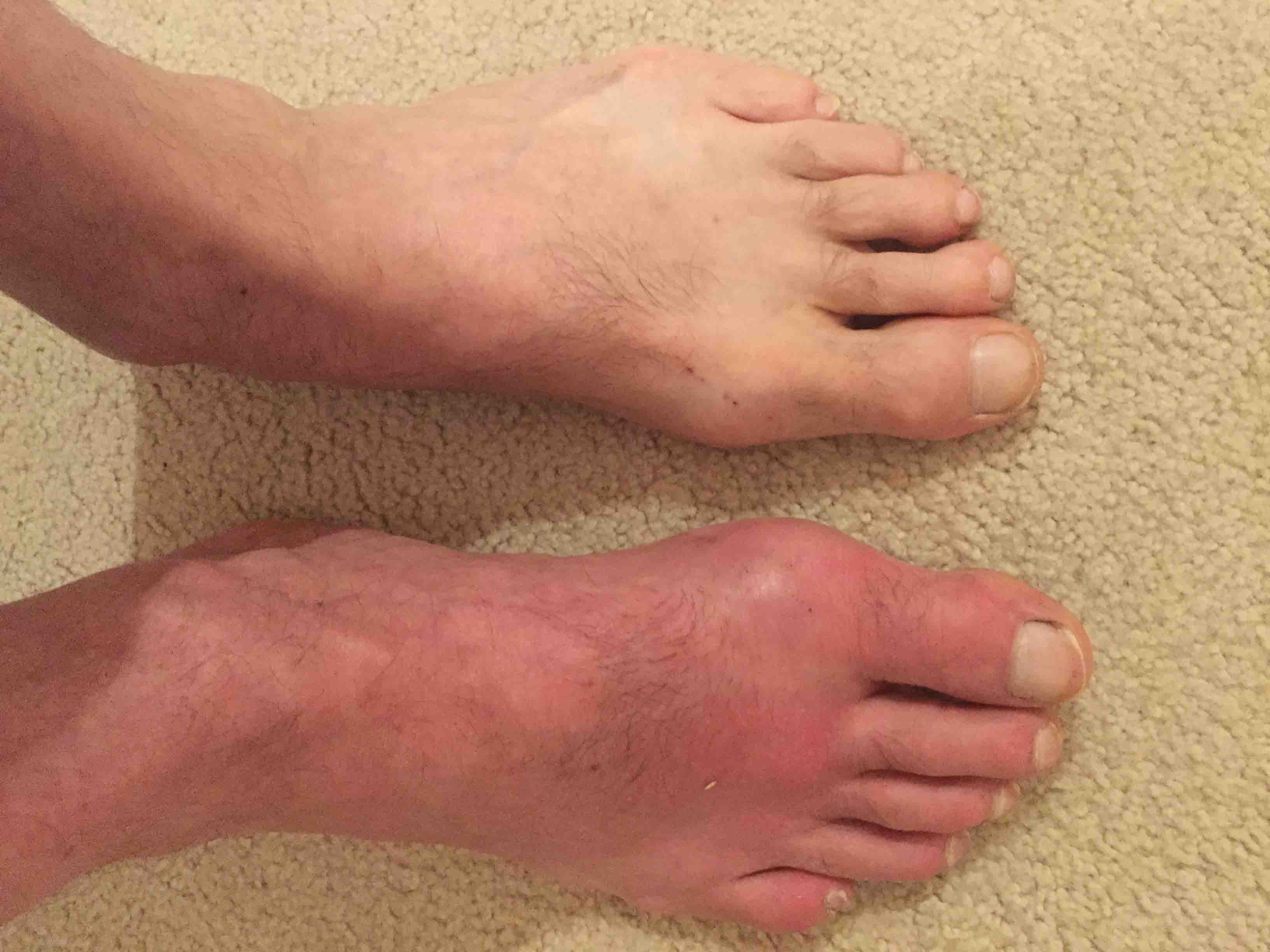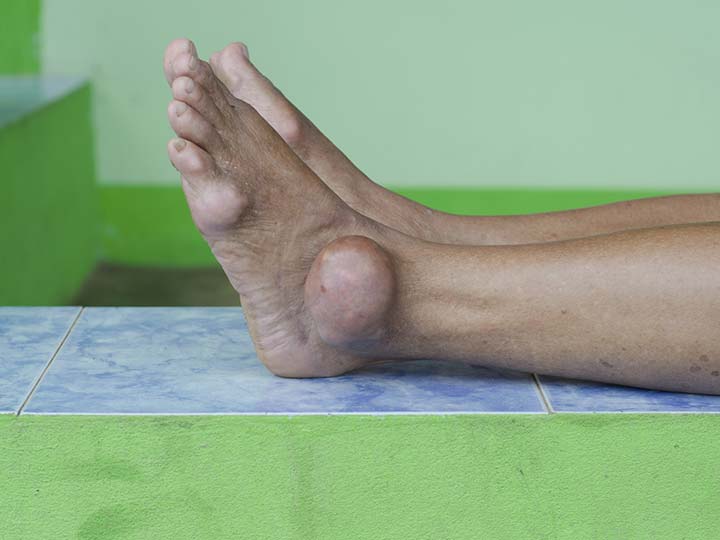Contact Gout Aware
Contact Gout aware
an email is great

Feel free to contact Gout Aware, by filling in the form below.
Gout
It hurts, it is the most painful form of inflammatory arthritis, it is recurrent in attacks, it creates swollen red joints and can appear in the middle of the night and stay with you for months. Gout can maim, gout can cause kidney stones, kidney disorders, heart attacks, and even death. Caused by excess uric acid in your system that your kidneys cannot excrete out fast enough. This is an awful disease to have and millions or men and women around the world suffer from gout.
But there can be gout cures and treatments, both herbal and medicinal.
You have to learn about gout, your gout, what triggers it, what aids in treating it. What side effects from the medicine occurs, what herbs or folk tale remedies work. Changing your diet, exercising more, drinking more water.. It is up to you to learn how your body works. OR YOU CAN READ ABOUT IT ON THIS SITE, DO NOTHING AND SUFFER THE SERIOUS CONSEQUENCES OF NOT TAKING ACTION AND HAVING A POOR LIFESTYLE RICH IN PAIN AND SUFFERING UNTIL YOU DIE.
YOU CHOICE STARTS NOW.
cONTACT gOUT aWARE FOR MORE INFORMATION OR JUST READ EVERYTHING THAT IS THE SITE.
DO YOU WANT THIS ????

Gout is one of the most painful forms of arthritis. It occurs when too much uric acid builds up in the body. The buildup of uric acid can lead to:
- Sharp uric acid crystal deposits in joints, often in the big toe
- Deposits of uric acid (called tophi) that look like lumps under the skin
- Kidney stones from uric acid crystals in the kidneys.
For many people, the first attack of gout occurs in the big toe. Often, the attack wakes a person from sleep. The toe is very sore, red, warm, and swollen.
Gout can cause:
- Pain
- Swelling
- Redness
- Heat
- Stiffness in joints.
In addition to the big toe, gout can affect the:
- Insteps
- Ankles
- Heels
- Knees
- Wrists
- Fingers
- Elbows.
- cONTACT gOUT aWARE
A gout attack can be brought on by stressful events, alcohol or drugs, or another illness. Early attacks usually get better within 3 to 10 days, even without treatment. The next attack may not occur for months or even years.
Gout is caused by the buildup of too much uric acid in the body. Uric acid comes from the breakdown of substances called purines. Purines are found in all of your body’s tissues. They are also in many foods, such as liver, dried beans and peas, and anchovies.
Normally, uric acid dissolves in the blood. It passes through the kidneys and out of the body in urine. But uric acid can build up in the blood when:
- The body increases the amount of uric acid it makes.
- The kidneys do not get rid of enough uric acid.
- A person eats too many foods high in purines.
When uric acid levels in the blood are high, it is called hyperuricemia. Most people with hyperuricemia do not develop gout. But if excess uric acid crystals form in the body, gout can develop.
You are more likely to have gout if you:
- Have family members with the disease
- Are a man
- Are overweight
- Drink too much alcohol
- Eat too many foods rich in purines
- Have an enzyme defect that makes it hard for the body to break down purines
- Are exposed to lead in the environment
- Have had an organ transplant
- Use some medicines such as diuretics, aspirin, cyclosporine, or levodopa
- Take the vitamin niacin.
Your doctor will ask about your symptoms, medical history, and family history of gout. Signs and symptoms of gout include:
- Hyperuricemia (high level of uric acid in the blood)
- Uric acid crystals in joint fluid
- More than one attack of acute arthritis
- Arthritis that develops in 1 day, producing a swollen, red, and warm joint
- Attack of arthritis in only one joint, usually the toe, ankle, or knee.
To confirm a diagnosis of gout, your doctor may draw a sample of fluid from an inflamed joint to look for crystals associated with gout.
How Is Gout Treated?Doctors use medicines to treat an acute attack of gout, including:
- Nonsteroidal anti-inflammatory drugs (NSAIDs)
- Corticosteroids, such as prednisone
- Colchicine, which works best when taken within the first 12 hours of an acute attack.
Sometimes doctors prescribe NSAIDs or colchicine in small daily doses to prevent future attacks. There are also medicines that lower the level of uric acid in the blood.
What Can People With Gout Do to Stay Healthy?Some things that you can do to stay healthy are:
- Take the medicines your doctor prescribes as directed.
- Tell your doctor about all the medicines and vitamins you take.
- Plan followup visits with your doctor.
- Maintain a healthy, balanced diet. Avoid foods that are high in purines, and drink plenty of water.
- Exercise regularly and maintain a healthy body weight. Ask your doctor about how to lose weight safely. Fast or extreme weight loss can increase uric acid levels in the blood.
Scientists are studying:
- Which NSAIDs are the most effective treatments for gout
- Optimal dosages of medications for gout
- New medicines that safely lower uric acid in the blood and reduce symptoms
- New therapies that block a chemical called tumor necrosis factor
- Enzymes that break down purines in the body
- The role of foods and certain vitamins
- The role of genetics and environmental factors
- The interactions of cells involved in acute gout attacks.
Scientists are also studying the role of genetics and environmental factors in hyperuricemia and gout.
Contact gout Aware For More Information on Gout and Other Related Conditions:The information in this fact sheet was summarized in easy-to-read format from information in a more detailed NIAMS publication. To order the Gout Q&A full-text version, please contact NIAMS using the contact information above. To view the complete text or to order online, visit http://www.niams.nih.gov.
For Your Information Contact gout AwareThis publication contains information about medications used to treat the health condition discussed here. When this publication was developed, we included the most up-to-date (accurate) information available. Occasionally, new information on medication is released.
Contact GOUT AWARE

Recent Articles
-
Tony
May 08, 24 08:57 PM
Hi Peter, I am a physician, had my first Gout episode last week. I was surfing through the web and happened to come across your site. I am impressed by -
What is it about Cherries?
Aug 25, 21 03:59 AM
Allopurinol worked for me, but at the expense of adversely affecting my mood.I like cherries, but getting them every day of the year is a problem.I wondered -
ACV made my gout worse...
Apr 22, 20 07:19 AM
During my first gout attack, I was in so much pain that I desperately scoured the internet for alternative cures as the colchicine that I was prescribed


